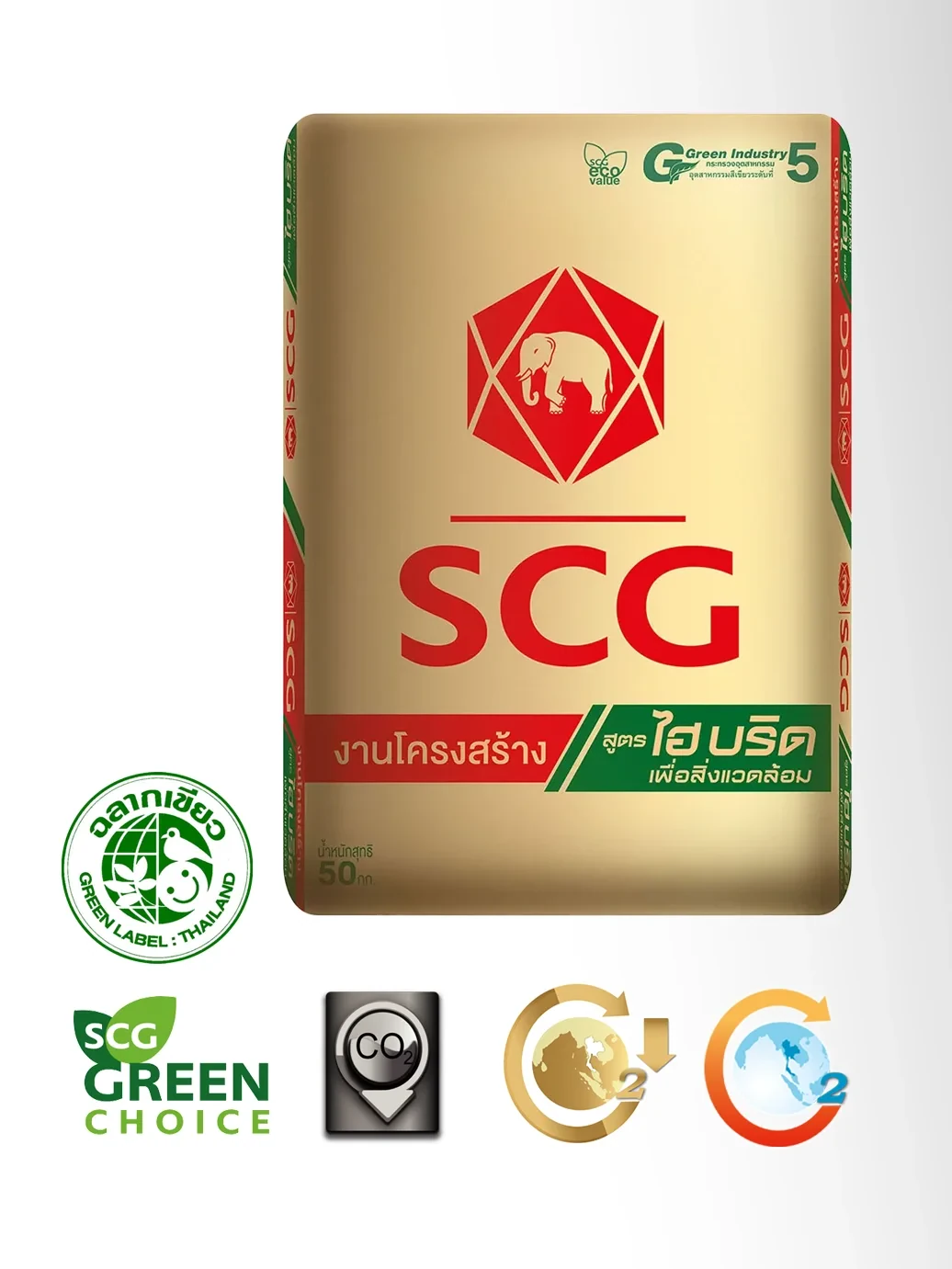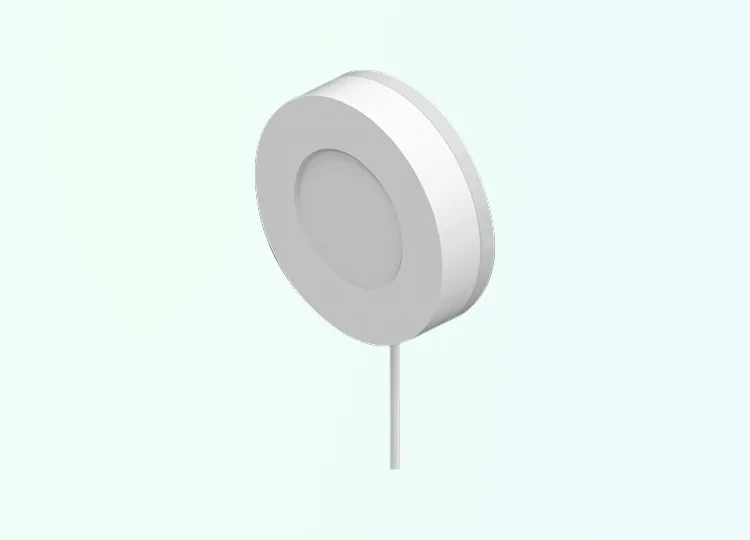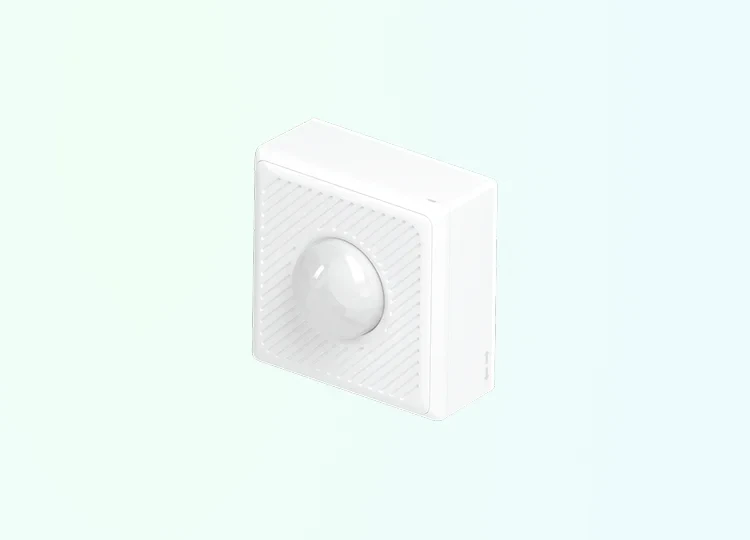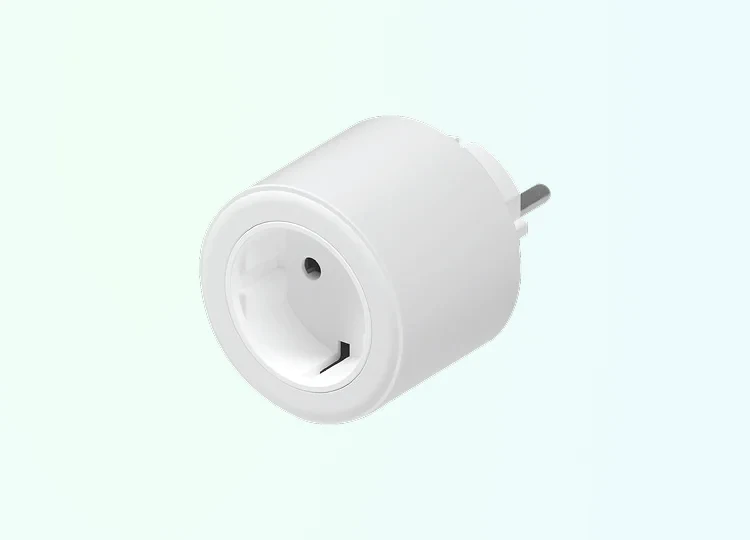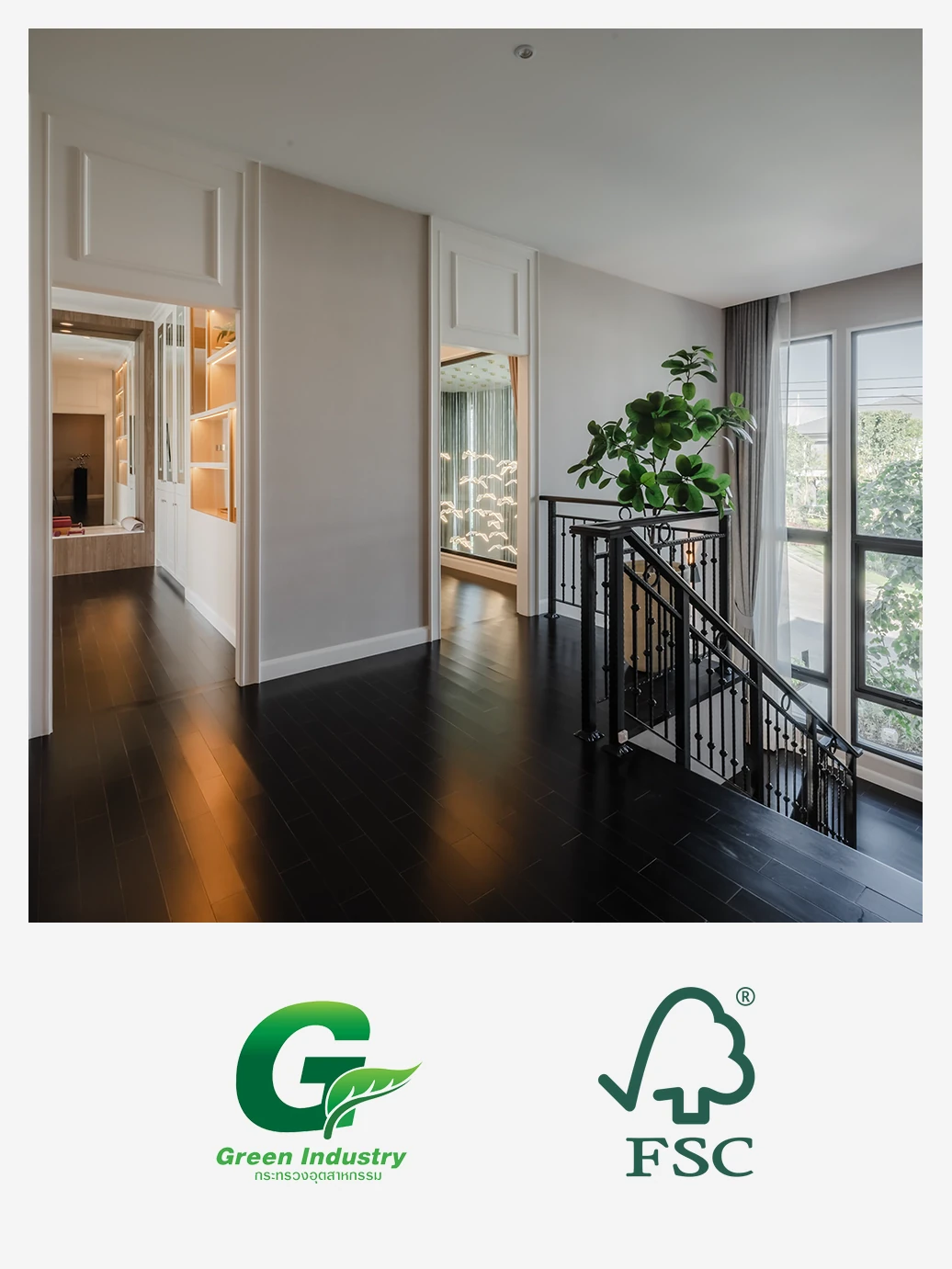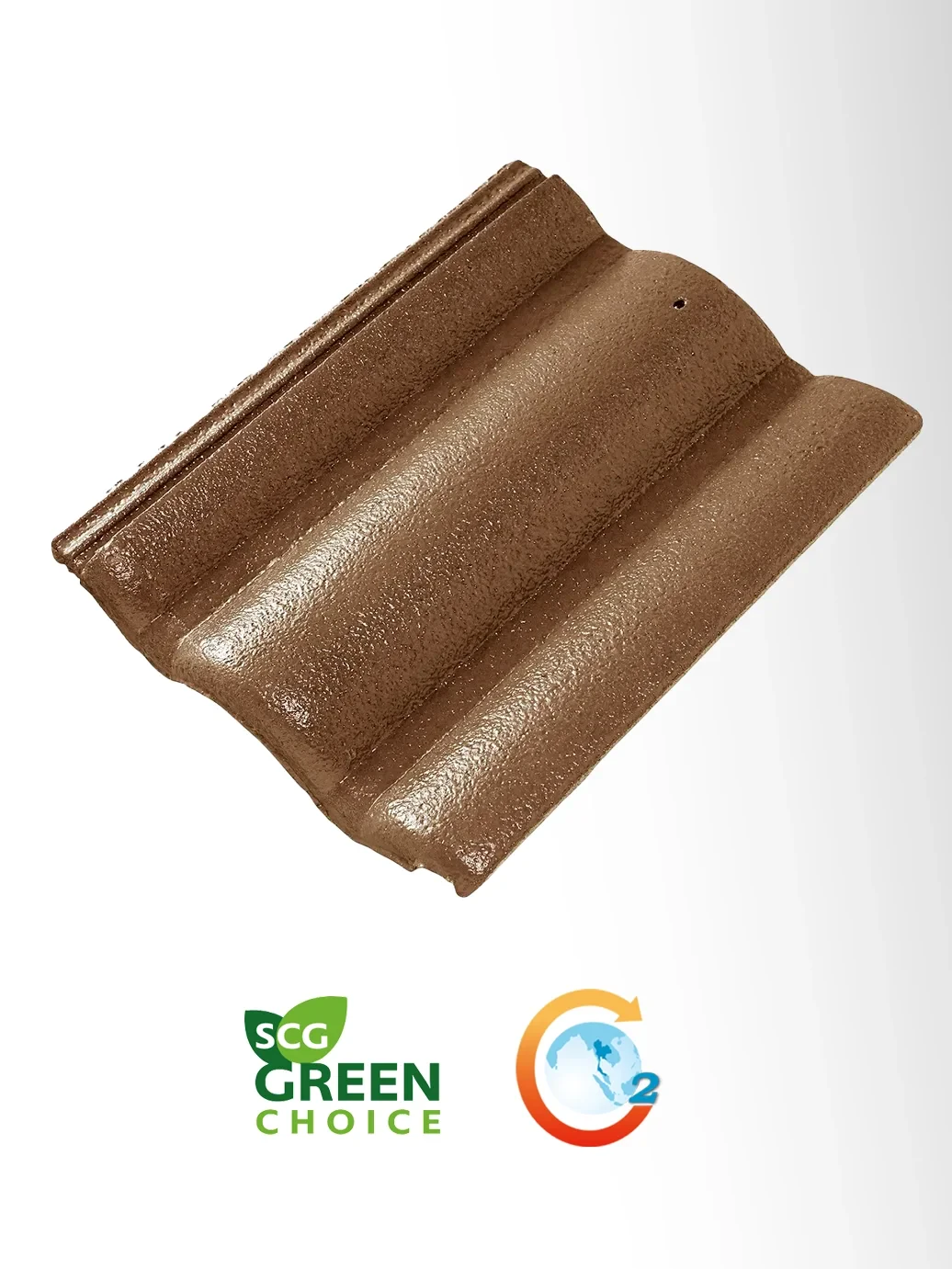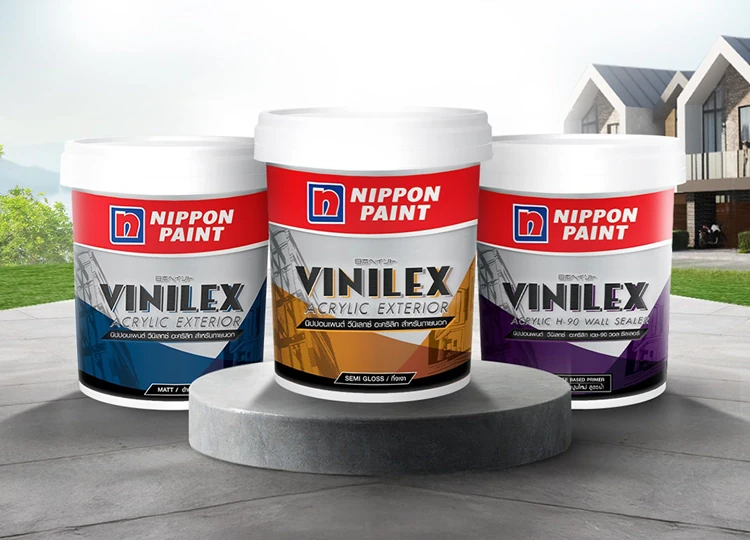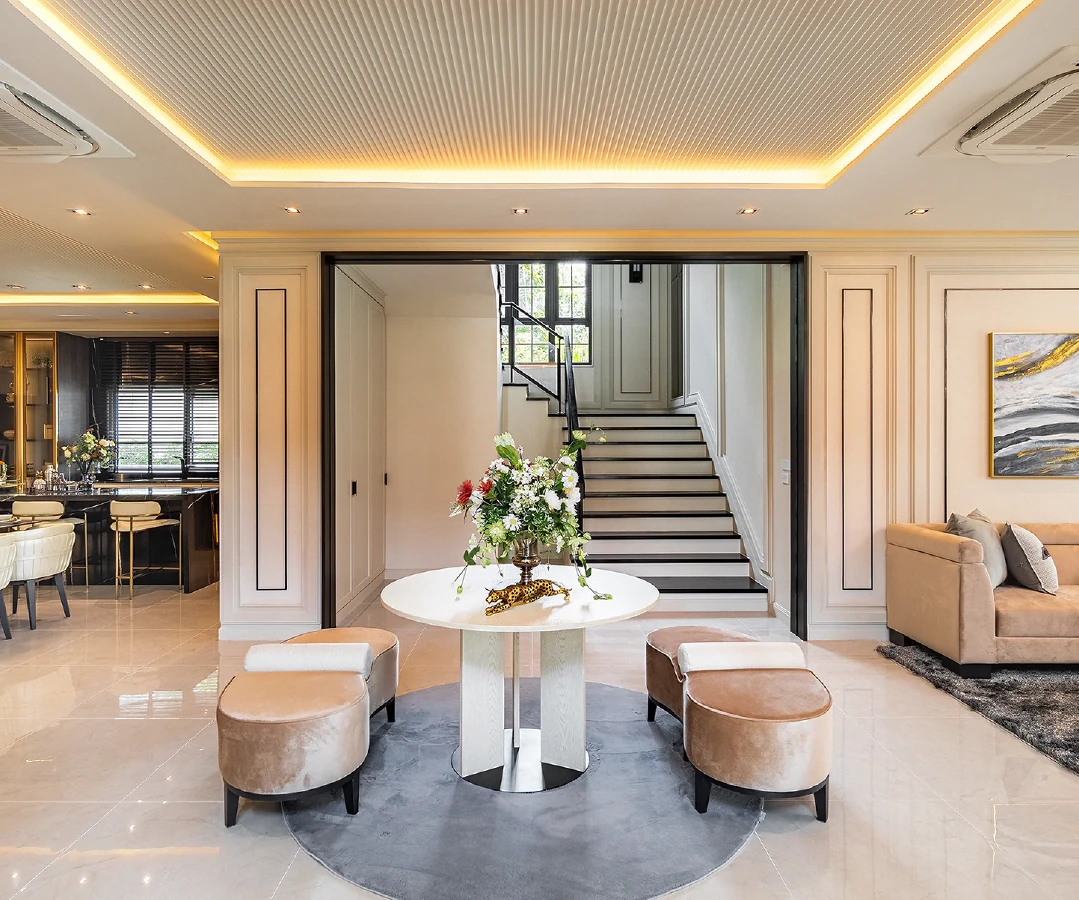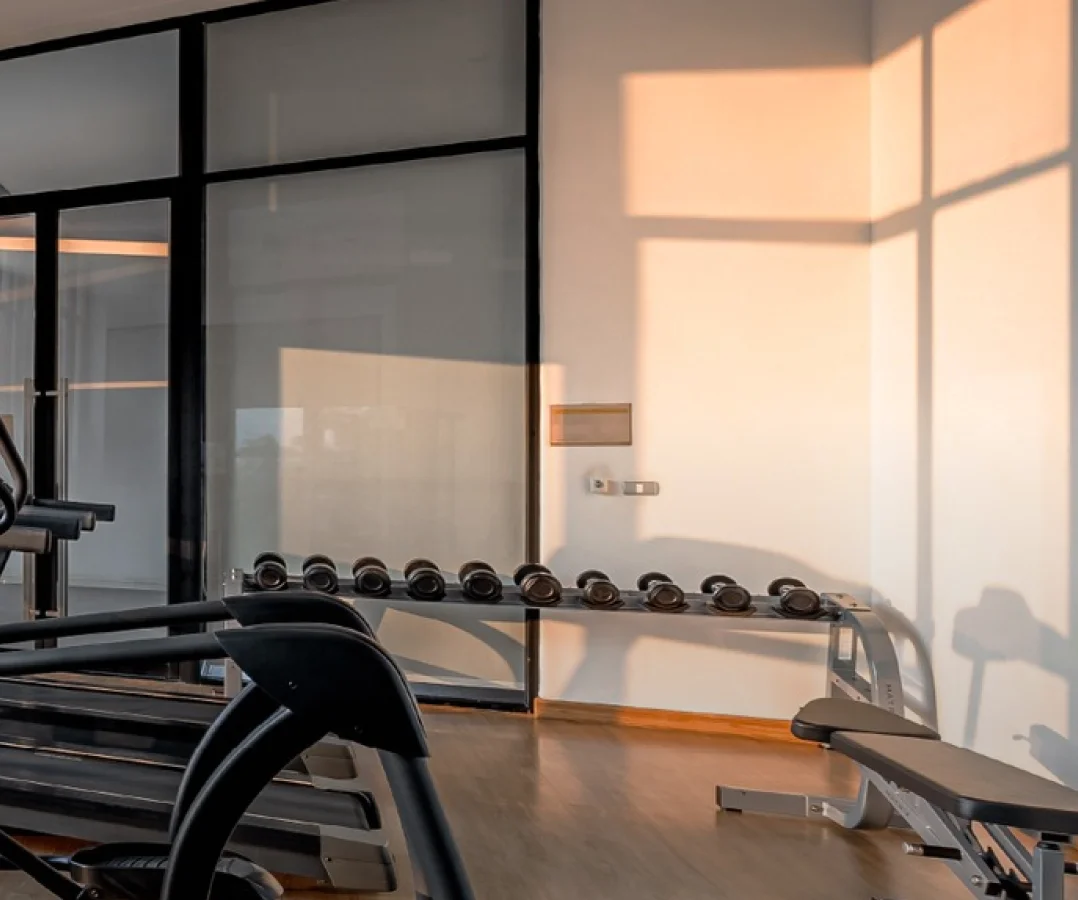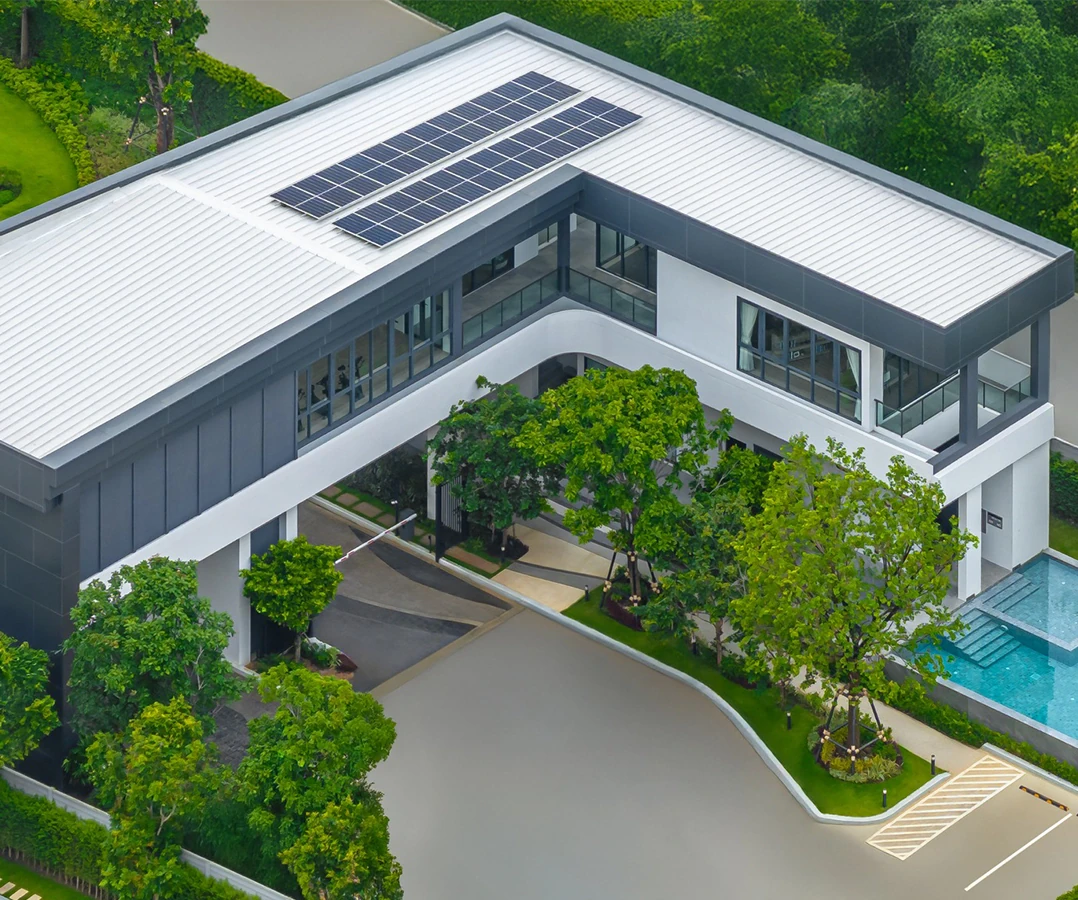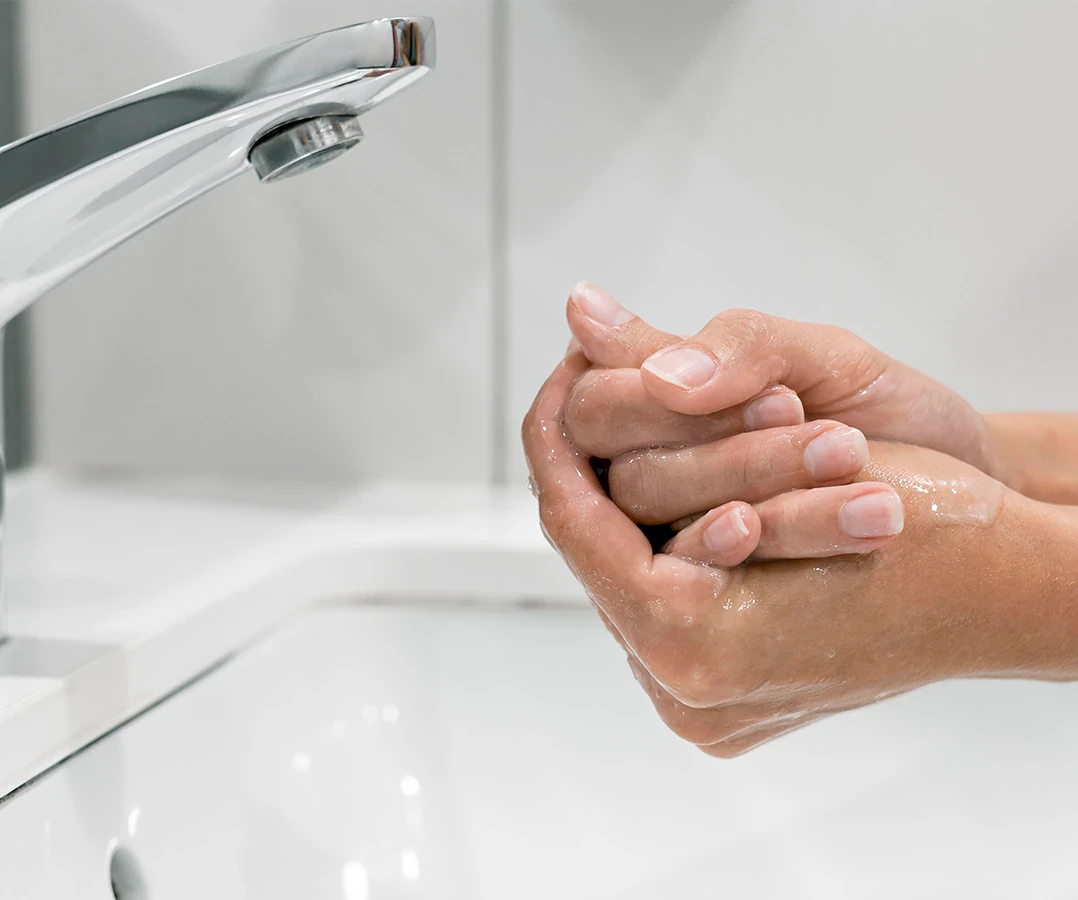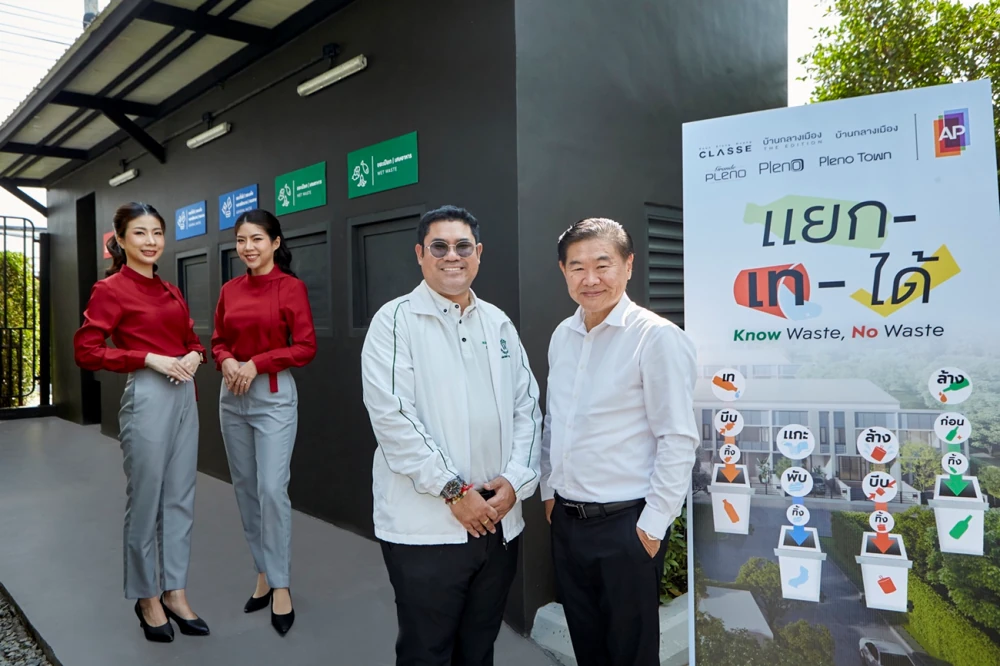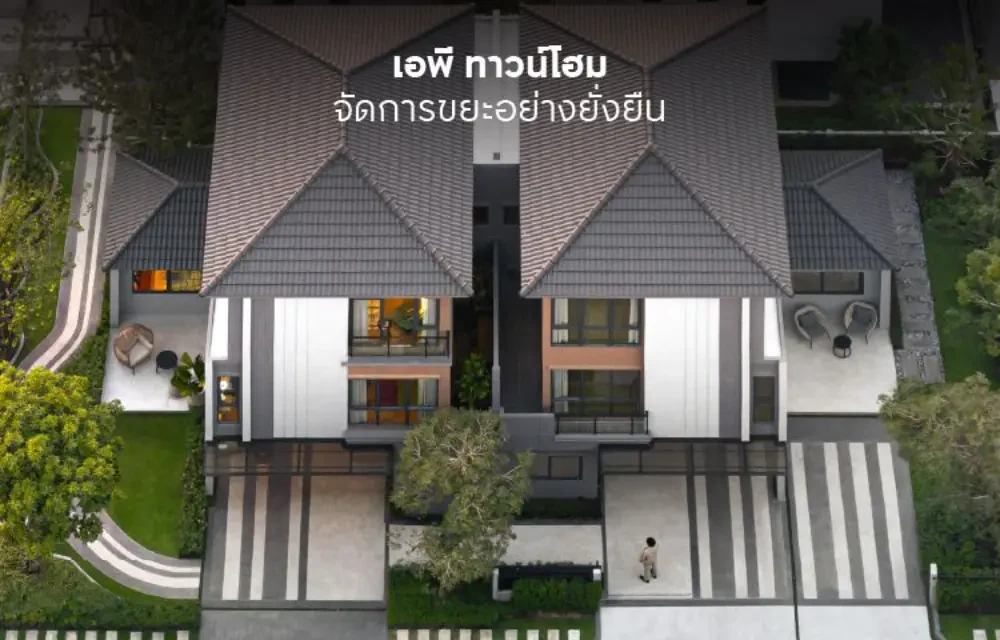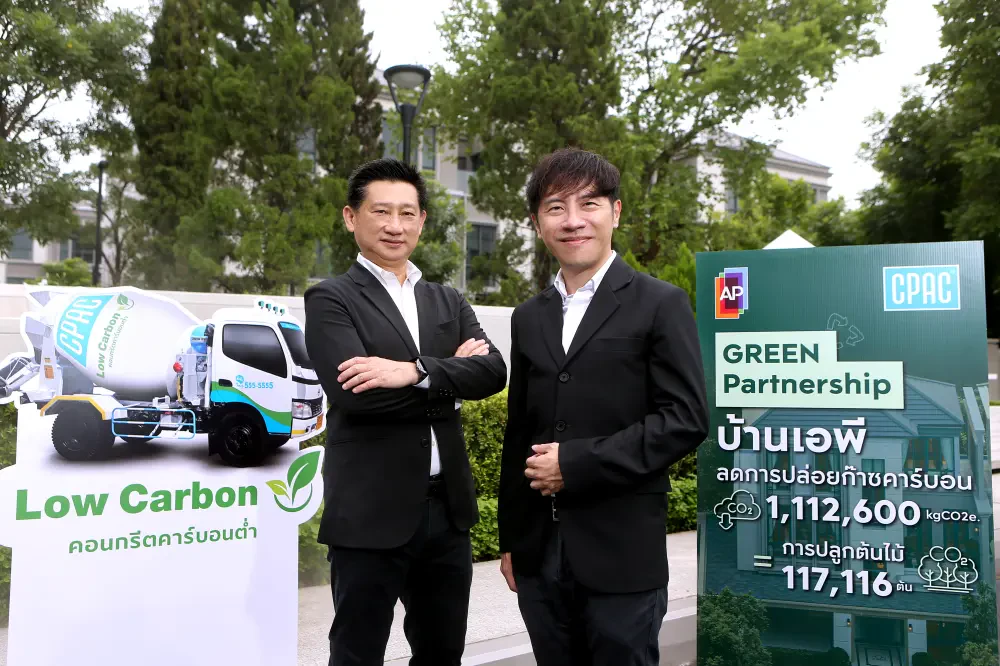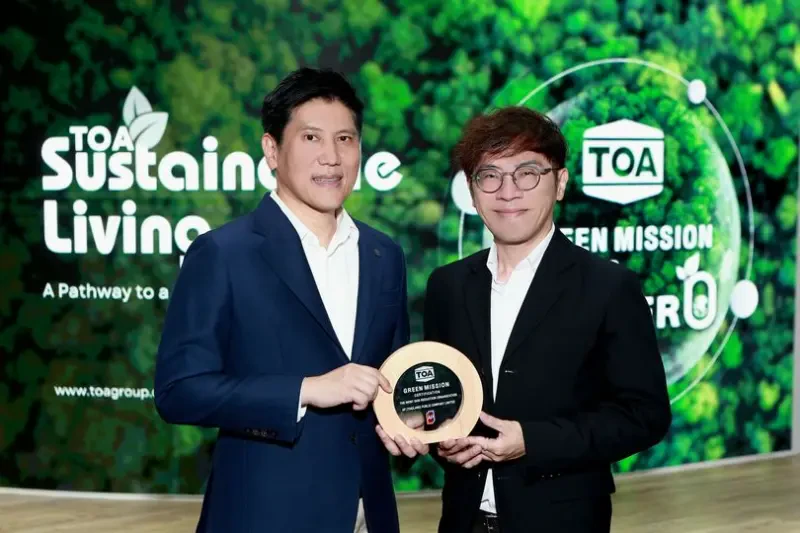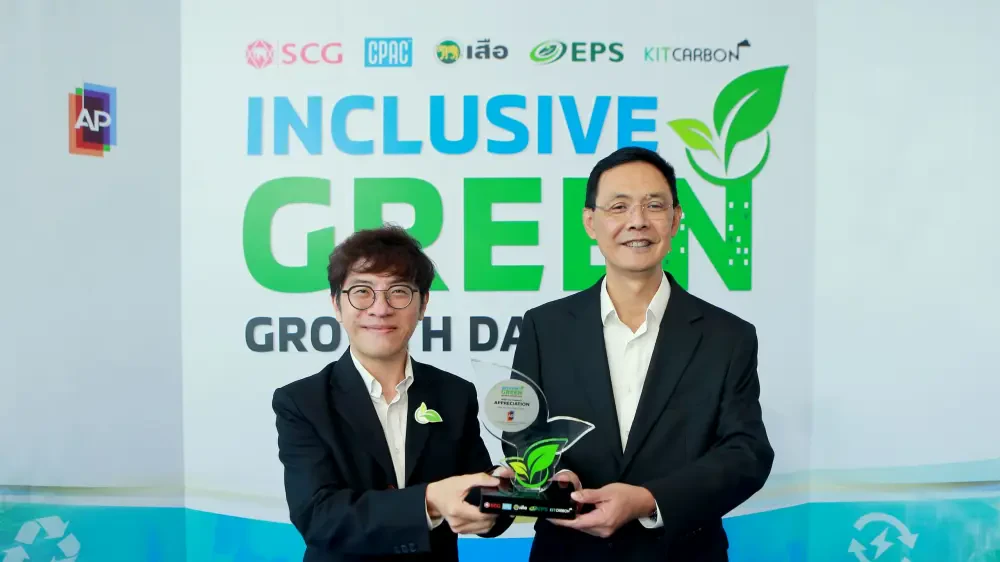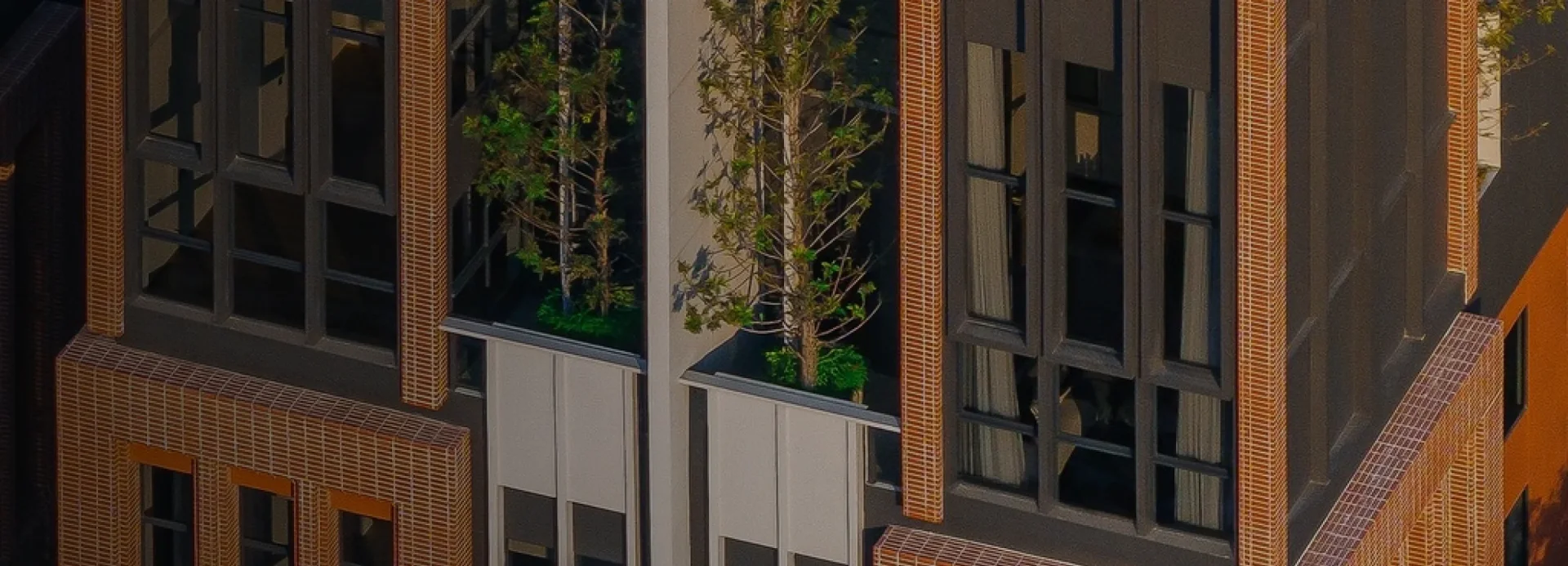
Resource and Material Efficiency Management
Environmentally Friendly Products and Services
Efficient use of resources and energy management are prioritized to reduce the impact of unnecessary material consumption. AP Thailand believes that ‘home is more than just a place to live in’ — it is about creating a sustainable quality of life. Every AP home is designed to grow with residents’ each stage of life, with attention to every detail, from design to the selection of quality, environmentally friendly construction materials. All under the 'Choose Green Environment' concept.
1. Energy conservation campaign activities by turning air conditioners on-off
Turning off electrical appliances when not in use, and choosing electrical appliances with energy-saving labels.
2. Selecting new innovations for energy conservation
For various projects, such as using green tinted glass, using heat-reflective paint certified with high efficiency energy-saving label No.5, designing buildings to receive more light and ventilation than legally required, installing heat-reflective sheets under roofs, flat slate flooring systems, etc.
3. Supporting projects which reduce electricity consumption
By installing solar power generation systems (solar cells) in sales office areas and project common areas, installing electric vehicle charging stations in high-rise projects, and supporting solar cell installation for homeowners who require it.
Goals
Performance Highlights
Our Commitment
AP Thailand is committed to developing sustainable real estate projects, placing emphasis on the management of natural resources and the efficient use of materials. The company upholds policies that prioritize energy and environmental conservation, incorporating green building concepts and selecting products that meet energy efficiency standards, in order to create high-quality, environmentally friendly housing.
Supporting the SDGs Goals
Stakeholders Directly Impacted
Challenges and Opportunities
Efficient management of resources and materials in the real estate industry is a key issue AP Thailand places great importance upon. With the core challenges being the selection of environmentally friendly materials with low greenhouse gas emissions, maximizing the efficient use of natural resources, systematic construction waste management, increasingly strict environmental regulations, and the high cost of eco-friendly materials. Nonetheless, there are opportunities for development, including the adoption of circular economy principles to reduce construction waste and increase the use of recycled materials, investment in sustainable material innovation such as low-carbon cement, and the application of digital technologies to enhance resource efficiency.
Moreover, the shifting consumer demand toward environmentally friendly projects presents an opportunity for AP Thailand to develop projects that use clean energy, incorporate green spaces, and utilize materials with minimized environmental impact. This not only creates a competitive business advantage but also delivers long-term sustainable value to society and the environment.
Management Approach and Value Creation
AP Thailand focuses on developing sustainable real estate projects by efficiently managing resources and materials throughout all processes, from design and construction to usage and long-term building management, to ensure resources are utilized to their fullest potential and environmental impacts are minimized.
Sustainable Design and Construction
AP (Thailand) Public Company Limited places great importance on sustainable residential design and construction by integrating green building concepts and energy efficiency throughout its project development processes, both for low-rise and high-rise buildings.
The company designs buildings in harmony with nature. For example, by utilizing natural ventilation and incorporating natural light into common areas, to help reduce electricity usage. Materials with heat-reducing properties are also used, such as roof insulation, green-tinted glass to minimize heat gain, and environmentally friendly construction materials.

In 2024, the company collaborated with private sector partners to use materials and innovations that help reduce environmental impact, as follows:
- Use of environmentally friendly construction materials accounted for 52.7% of all materials used
- Supported the use of low-carbon cement and recycled materials in multiple projects
- Installed solar power systems (Solar Cell) in common areas of low-rise projects, with plans to expand to high-rise projects in the future
- Applied Building Information Modeling (BIM) technology in building design and construction, reducing production costs by 68 THB per square meter, and lowering design-related construction waste by 2,620 cubic meters
This approach reflects AP Thailand’s commitment to developing real estate projects that minimize environmental impact and promote sustainable quality of life for residents and surrounding communities.

Efficient use of energy
As a leader in real estate development, AP Thailand recognizes the importance of efficient energy use at both the organizational and project levels. The company adheres to minimizing environmental impact alongside enhancing business efficiency as its core operational approach. The company therefore places great importance on systematic energy management and the adoption of technology and innovation to improve energy efficiency and generate long-term value.
In 2024, the company implemented various proactive measures to promote energy efficiency, such as the installation of solar power generation systems (solar cells) in both office areas and shared spaces within horizontal residential projects. These initiatives help reduce dependence on conventional energy sources and significantly cut greenhouse gas emissions. Throughout the year, the company was able to utilize a total of 1,072.64 megawatt-hours (MWh) of alternative energy from solar cells, an increase of 707.17 MWh, or 193.5%, compared to the previous year (2023).
In parallel with promoting alternative energy, the company has continued implementing measures within its head office. For example, designing buildings to optimize natural lighting and ventilation, using insulation to reduce air conditioning energy consumption, upgrading to energy-efficient electrical equipment, setting schedules to turn air conditioners on and off, and raising awareness about energy conservation among employees. As a result of these tangible actions, the company was able to reduce electricity consumption at its head office by 9.27% compared to 2023.
This serves as further crucial evidence of the company’s genuine and ongoing commitment to reducing environmental impact. For AP Thailand, energy management is not merely a cost-saving measure but a foundation of sustainability, integrated with the goal of developing quality housing to truly create a “Sustainable Living” in every project.

Changing Behavior of Energy Use in Buildings

Incorporating Energy Innovations into Projects

Installing Clean and Renewable Energy Systems
Building Partnerships with Business Allies
AP Thailand believes that driving sustainability in the real estate business cannot be achieved alone but requires collaboration with partners throughout the supply chain. The company focuses on building strategic partnerships with construction material manufacturers, environmental organizations, and experts from various fields to jointly develop innovations that reduce environmental impact and elevate industry standards sustainably.
One of the key collaborations is the joint development of low-carbon concrete innovation with CPAC (a manufacturer of construction materials and products), which helps reduce greenhouse gas emissions in the construction process. The company has already implemented the use of this material in its projects to concretely reduce its organizational carbon footprint.
Moreover, the company has collaborated with partners in energy management and efficient resource use, such as installing solar power generation systems in project areas and encouraging partners to adopt materials and technologies that enable more sustainable development.


